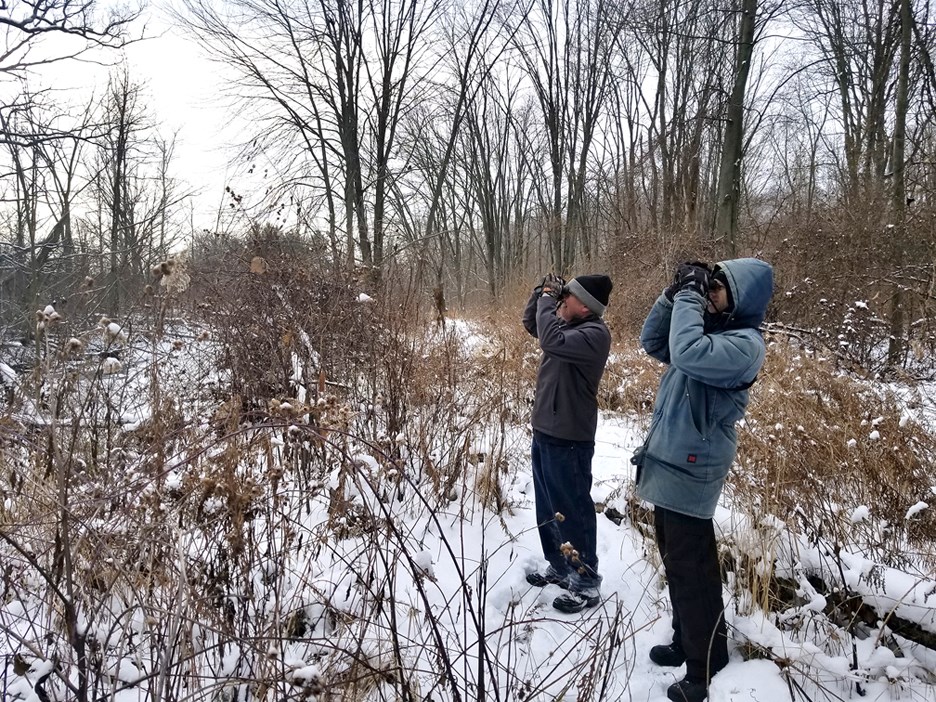When is a gardener not a birder? We can’t think of an answer.
Truth is, gardeners love birds, much as sailors love wind.
Now is a good time to consider how you can attract more birds to your yard or balcony. Between us, we have 15 bird feeders around our properties and almost 50 years of birding experience. Here is a short course on backyard birding:
- The seed. Many birds love seeds, which is why we put out a variety of them: to attract the widest possible variety of attractive songbirds. But not all birds are attracted to the same seeds. Here is a guide to help you get the most out of your birdseed:Ěý
- Black oil sunflower seed is the closest to a universally accepted birdseed. Cardinals and goldfinches love it.
- Mourning doves are attracted to buckwheat and cracked corn. Avoiding cracked corn in your birdseed mix will help to minimize the population of grackles and mourning doves at your feeders.
- Quality canary seed attracts house sparrows. Song sparrows have a stronger preference for it than house sparrows.
- Safflower, in our experience, may be the last birdseed you will ever buy. Very few birds will eat it. But squirrels don’t like it either, which is why is it often sold as “squirrel free”.
- Black-striped sunflowers seeds are preferred by most songbirds. The smaller the seed the better.
- Thistle is the #1 choice for attracting finches. Goldfinch are brownish in colour this time of year but change to brilliant yellow in the spring.
- Unsalted, shelled peanuts are candy for most woodpeckers and blue jays.
- Techniques.We have discovered the following techniques for attracting birds:
- Upside-down suet feeders. Attract woodpeckers to beat the band but discourage most grackles. They travel in herds like flying baboons, raiding bird feeders as they go. Grackles do not like to feed upside down.
- The best way to offer shelled peanuts to birds is with a peanut feeder. Similarly, a finch feeder provides best access to finch food.
- Cats.Bird Studies Canada reports that about 100 million birds die each year in Canada due to cats. Consider leaving yours indoors during the day, when birds are most active.
- Clean is good. Cleaning your bird feeders on a regular basis helps to minimize disease. When birds congregate around bird feeders there is a greater propensity for the spreading of disease.
- Squirrels are the “elephant in the room”. They love birdseed. You won’t be able to “get rid of them” but you can minimize their consumption of bird food by following these tips:
- Place your feeders at least 7 meters away from tree limbs or the eave of your house.
- Use a squirrel baffle. When they have figured out how to mount that, spray it with oil to make it slippery. Their attempts to climb it will amuse you.
- Provide their own source of squirrel food. A corn-husk squirrel wheel is great entertainment. Available at hardware stores and birding shops.
Birds Studies Canada is a national charity built on the contributions of thousands of supporters and Citizen Scientists. Their scientists identify significant population changes and direct conservation planning. Consider joining their Project NestWatch. This program is aimed at getting people across Canada involved in collecting data on nesting birds. This information is used to follow the health of bird populations through long-term monitoring of nesting activity. The data also provide valuable information on changes in the environment, as birds are good indicators of the condition of the habitat they live in.
Mark Cullen is an expert gardener, author, broadcaster, tree advocate and Member of the Order of Canada. His son Ben is a fourth-generation urban gardener and graduate of University of Guelph and Dalhousie University in Halifax. Follow them at markcullen.com, @markcullengardening, on Facebook and bi-weekly on Global TV’s National Morning Show.
Ěý



